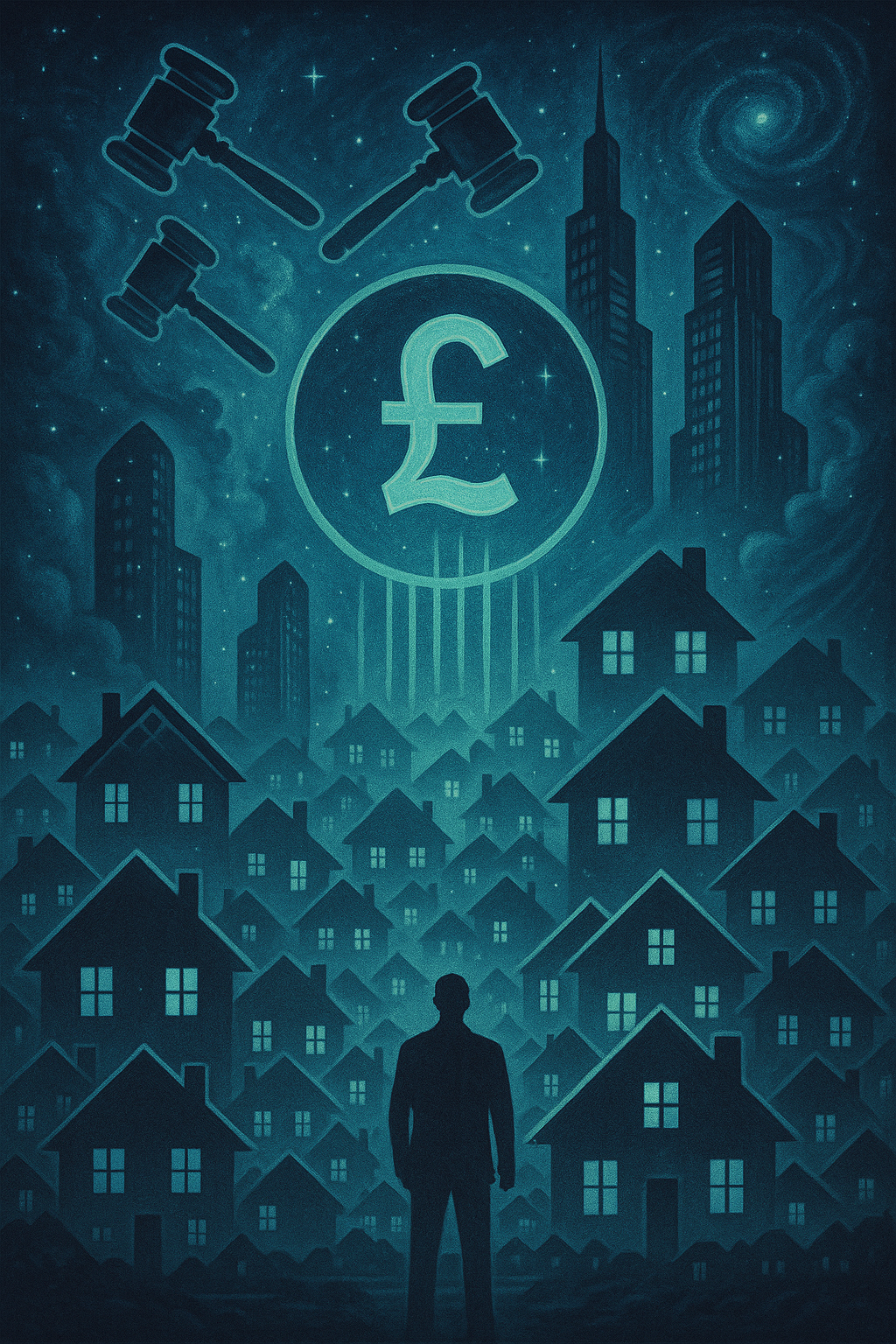Caught in the Web: How Global Pressures Trap Governments into Exploiting Their Own
Popular articles
Introduction
Governments worldwide, including the UK’s, operate under a tangleof influences—global elites, foreign adversaries, lobbyists, and afading grip on economic reality. These forces don’t just coexist;they collide and compound, shaping a system where leaders,intentionally or not, end up squeezing their own people. This isn’tabout secret cabals—it’s the natural grind of competingpressures, pushing governments to exploit their citizens untilresistance forces a shift. This article explores how these dynamicsinterlock, driving a cycle of harm, and outlines potential paths thiscould take, from drastic escalation to internal crackdowns, asleaders wrestle with a reality they can’t fully escape.
TheForces at Play
Governments face a barrage of external pulls. Foreignadversaries—think rival states—prod at weaknesses, usinginfluence ops or economic leverage to tilt policy their way.Lobbyists and consulting groups, often bankrolled by global players,flood the system with cash and spin, nudging decisions towardcorporate or foreign interests. The global elite—wealthy,borderless influencers—chase personal gain, their priorities oftenclashing with national needs. Meanwhile, economic reality—theactual welfare of citizens—gets drowned out, shrinking to a sliveras these louder voices dominate. Each pressure bounces off theothers: a foreign state funds a lobbyist, who sways an elite, whobends policy—leaving the public’s voice faint.
How They Interlock Thesearen’t isolated—they feed into a self-reinforcing mess. Foreignpressure—like trade threats—amps up lobbyist activity, pushingquick-fix policies that favor outsiders over locals. Elites, tied toglobal markets, lean on governments to keep profits flowing, even ifit hollows out domestic jobs. Economic reality erodes as budgets bendto these demands—tax breaks for the connected, cuts for the rest.It’s a ping-pong effect: each force amplifies the others, boxingleaders into a corner where the easiest move is to keep milking theirown people—higher taxes, slashed services, ignored infrastructure.The system’s not broken; it’s just built this way, a cycle whereresistance is the only brake.
The Cycle of Exploitation
Caught in this web, governments default to what’s simplest: leaning harder on their citizens. It’s not always malice—often it’s inertia. Raising revenue’s easier than fighting lobbyists;appeasing foreign powers beats economic standoffs; placating eliteskeeps the system humming. Over time, this compounds—public wealth drains, trust frays, and nations weaken. Leaders spin tales to maskit—“security needs,” “global competitiveness”—but theharm’s real: stagnating wages, crumbling systems, a slow bleed.They’re not always aware they’re the villains; the pressures blind them, and the path of least resistance becomes a treadmill,grinding their own people until something snaps. This isn’t uniqueto the UK—governments globally face this trap, their positionsdictated by the same relentless forces.
Potential Paths Forward
This cycle doesn’t run forever—pushback looms, and when it comes, governments might pivot down drastic routes. Here are a fewdirections this could head, each a response to the mounting tensionbetween external pressures and internal erosion:
- Escalation to Global Conflict: One path is sparking something massive—say, a World War 3 scenario—to reset the board. Leaders could frame foreign adversaries as existential threats, rallying citizens while quietly purging dissenters labeled as “internal risks.” It’s a pressure valve: external war distracts from domestic rot, justifies control, and silences opposition under a patriot banner. The cost? Nations gutted further, people as collateral.
- Dissenters as Terrorists: Another route turns inward—governments might recast their own citizens as the enemy. Protesters, whistleblowers, or anyone pushing back get branded “terrorists” or “traitors,” a handy excuse to clamp down. External pressures—like lobbyists demanding stability—feed this, turning public frustration into a security issue. It’s already simmering in places: dissent framed as disloyalty, eroding trust more.
- Capitulation to External Forces: A quieter option—leaders could just give in fully, letting foreign powers and elites dictate terms. Trade deals, resource sell-offs, or policy handouts accelerate, hollowing out the nation faster. Citizens get milked through neglect—services vanish, wealth flows out—while governments parrot “global necessity.” It’s surrender dressed as strategy, the easiest dodge of all.
- Populist Backlash Pivot: Pushback might force a shift—leaders could ride public anger, promising to “fix” it with populist noise. They’d blame foreigners or elites, maybe claw back some ground, but the cycle’s roots—lobbyists, weak incentives—often stay dug in. It’s a half-measure: loud, shaky, and prone to fizzling out unless the pressures themselves crack.
The Underlying Reality
Whatties these paths together is the disconnect: governments, pressuredfrom outside and within, lose sight of who they’re meant to serve.Foreign adversaries want leverage, lobbyists want wins, elites wantprofit—citizens barely register. The UK’s seen it—decades ofasset sales (e.g., to China) or lobbying sway (e.g., oil firmsstalling green shifts)—and it’s not alone. Economics gets lipservice, but reality shrinks as leaders dodge fights they can’twin. They don’t always hate their people—many just can’t seepast the web—but the result’s the same: a slow dismantling,justified by spin, until resistance forces a reckoning.
LookingAhead: A Fragile Balance
Thisisn’t a dead end—it’s a trajectory. Governments will keepexploiting their own, driven by these interlocking forces, until thecost outweighs the ease. Pushback—protests, voting shifts, orworse—will shape what’s next, but the cycle’s deep. World War3? Internal purges? Full surrender? Each risks more harm, yet they’repaths of least resistance too. The alternative—breaking theweb—means facing down lobbyists, elites, and adversaries head-on, atall order when the system rewards compliance. For now, it is what itis: a grind where people pay, and leaders, half-blind, keep spinningthe wheel.
Subscribe to unlock premium content
Sed at tellus, pharetra lacus, aenean risus non nisl ultricies commodo diam aliquet arcu enim eu leo porttitor habitasse adipiscing porttitor varius ultricies facilisis viverra lacus neque.
The Great Wealth Generation Act 1.0

The Great Democracy Restoration Act

UK Nutrition Act 1.0

The Great Wealth Generation Act 1.0

The Great Democracy Restoration Act

The Great Wealth Generation Act 1.0







